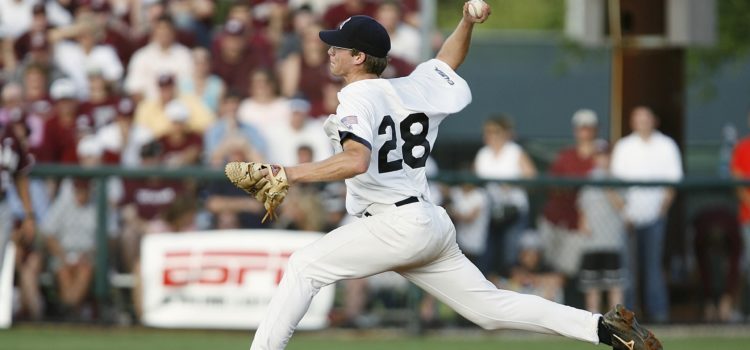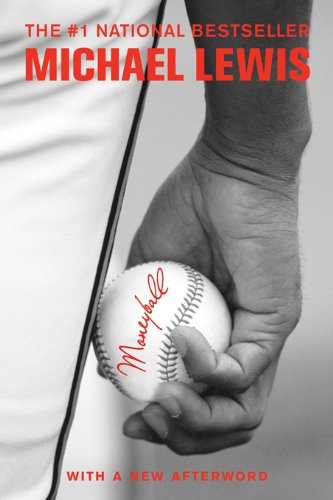

This article is an excerpt from the Shortform summary of "Moneyball" by Michael Lewis. Shortform has the world's best summaries of books you should be reading.
Like this article? Sign up for a free trial here .
Who is Ricardo Rincon? What was his role in Moneyball?
Ricardo Rincon is a reliever that A’s GM Billy Beane has been eyeing the whole season. Now, Billy Beane spots the opportunity to get Ricardo Rincon on his roster. Read about how Moneyball‘s Rincon trade relied on Sabermetrics, and Billy’s dealmaking ability.
Making the Trades
Despite Billy’s savvy moves, the 2002 Oakland A’s get off to a rocky start. By mid-May, they are on a losing streak and are six games below .500. Clearly, they are not on pace to meet DePodesta’s 95-win benchmark for a postseason appearance.
The trade deadline looms ahead on July 31. After this date, teams cannot conduct trades until the end of the season. The trade deadline is a moment of reckoning for every team in the major leagues, when they must take stock and determine whether they are still in contention for the playoffs or whether they should begin planning for next season. Teams that are doing well might decide to be aggressive at the deadline and give up future assets to acquire star players. Teams that are out of contention, meanwhile, will offload expensive stars in exchange for younger and cheaper prospects.
Billy always excels at the trade deadline. Since 1999, the A’s have always performed remarkably better in the second half of the season, after the deadline, than in the first half. The reason for this is Billy’s shrewdness as a GM and his keen understanding of what his team needs—not to mention the foolishness and shortsightedness of his rival GMs, whose ignorance he consistently exploits. This is a great opportunity to get Moneyball‘s Rincon.
Freeing Up Cash for Ricardo Rincon
On July 1, a month out from the deadline, the A’s stand at 46-36, good for third place in the AL West, six games behind the division-leading Seattle Mariners. As the deadline approaches, Beane wants to acquire Cleveland Indians pitcher Ricardo Rincon. The Indians, all but eliminated from making the playoffs, are looking to get rid of Rincon, but their GM tells Beane that another team, the San Francisco Giants, is also interested in the pitcher.
Billy is also hemmed in by financial constraints: Ricardo Rincon is owed $508,000 for the rest of the season, money that the A’s don’t have. Billy needs to both outbid the Giants (or at least convince the Indians that his is the better offer) and find a way to pay Rincon’s salary. He needs to shed some money from his team’s current payroll to make room for Moneyball‘s Rincon.
He decides to auction off pitcher Mike Venafro to other teams that he knows are in the market for Ricardo Rincon, hoping that they will be willing to settle for the much cheaper Venafro as an alternative. This will also have the benefit of lowering the price for Rincon, as teams will see that there is another viable left-handed pitcher on the market. Most importantly, it will take Venafro’s salary off the books, partially clearing the way for the A’s to afford Ricardo Rincon.
After calling both the Giants and the Mets with an offer to trade them Venafro in exchange for a minor league player, word gets around the league that Venafro is on the market. Sure enough, the Indians’ GM calls Billy to tell him that the market for Rincon has now softened, and he is now willing to trade him to the A’s for less than he’d initially asked.
Billy wants to send Venafro to New York in exchange for a minor league player and $232,923 in cash (the remaining difference in salary between Venafro and Rincon, which he believes the Mets can easily afford). The A’s are actually more interested in getting rid of Venafro’s salary than acquiring anything from the Mets—in fact, when the Mets ask Billy what he wants in exchange for the pitcher, he chooses a player from one of the Mets’ minor league affiliates at random.
But Billy proves unable to actually unload Venafro—it turns out that the Mets actually need the cash. Billy calls up the A’s president, Mike Crowley, and tells him that if he is unable to shed Venafro’s salary this year, he will sell Rincon for twice the price next year. If he falls short of this goal, Billy vows to cover the difference personally out of his own salary—but if he manages to sell Rincon for more than twice the price, Billy will pocket anything over this amount. Billy Beane is taking a personal equity stake in one player. This convinces the A’s ownership to give Billy the greenlight to acquire Ricardo Rincon from the Indians.
Billy makes the deal for Ricardo Rincon, only giving up a minor league second baseman named Marshall McDougall. Billy demotes underperforming pitcher Mike Magnante to make room for Rincon on the roster. It’s all part of Billy’s efficient management of his baseball club—upgrading the team through new assets, and discarding the old ones when they’re no longer of use.
Through his trading skills, Billy Beane manages to acquire Ricardo Rincon. Moneyball‘s Rincon is the trade that Billy has been waiting for the whole season.

———End of Preview———
Like what you just read? Read the rest of the world's best summary of Michael Lewis's "Moneyball" at Shortform .
Here's what you'll find in our full Moneyball summary :
- How Billy Beane first flamed out as a baseball player before becoming a general manager
- The unconventional methods the Athletics used to recruit undervalued players
- How Sabermetrics influences American baseball today






